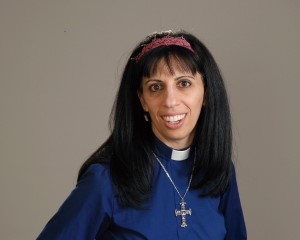 Rev. Dr. Niveen Sarras
Rev. Dr. Niveen Sarras
Water is very precious. Who can live without water? Imagine that you don’t have access to water for two or three months. Israelis deny Palestinians an equitable share of the shared water resources. So, Palestinians end up living for a few months without water. They only buy water to drink. People and countries fight over water. Countries that are enemies end up setting in one room to talk. “In parts of Africa and the Middle East, water is contaminated…In California and parts of the Middle East, water is scarce… In Ethiopia and Egypt, Florida and Georgia, water is contested.” Water crisis divides nations but also unite them and bring even enemies together.
The three states: Georgia, Florida, and Alabama struggle over access and control of their shared waters. This problem forced their governors to talk to resolve the conflict. You heard about California four-year drought. Lack of water created ecological and political water crisis and conflict between southern and northern California. I lived in California in 2015, in a city called Morgan Hill. The city imposed restrictions on water use. I could not have my garden.
ELCA World Hunger published a video tells the story of a 14-year-old girl, DIKO Marie, in the village of Niem, in the Central African Republic. DIKO Marie goes to the water source and fills a 5-gallon bucket with water for the day. Fetching water is her daily work struggle. Let us watch her story.
How the story of DIKO Marie and water crisis help us to have a new understanding of our baptism. How can our baptism help us to recognize water as a sacred gift instead of a commercial commodity?
Our faith story begins with water. The narratives of the creation, the flood, crossing the Red Sea and the Jordan into the Promised Land, Jesus’ baptism in the Jordan River, the waters of eternal life promised by Jesus are central to our faith.
Baptism is a symbol of life and death. We immerse into Christ’s death, and we rise with him into eternal life. As the apostle, Paul says, “We were therefore buried with him through baptism into death in order that, just as Christ was raised from the dead through the glory of the Father, we too may live a new life” (Romans 6:4). In our baptism, we meet life and death. Freshwater gives life, but contaminated water brings death. In baptism, we become in contact with the vital element for our lives.
The water of baptism is not merely H2O, but it is a visible sign of an invisible Grace of God. Baptism is not our work. It is not ours, but baptism is God's gift to us. We become children of God through our baptism. We do not belong to ourselves, but God's owns us forever. “Water is a sign and instrument of God’s saving work in the world. In multiple ways, baptism shows us that water is not our commodity, but a vital gift of God. Therefore we should not protect and defend water as if it belonged to us, but recognize that it is a gift for all.”
Christian calling starts at our baptism. Jesus calls us to follow him and be his witnesses to the world. “Baptism is a costly calling, not just a cultural rite.” Baptism turns our eyes to the world water crisis and invites us to help our neighbor like Diko Marie to have access to fresh water. baptism invites us to be in solidarity with wounded creation like contaminated water.
God’s gift of water is for the whole world. It is for all God’s creatures. Water is not meant to be treated as a commercial commodity or to serve our vested interest, but water intended for the common good. Thousands of activists from 30 countries gathered in the winter of 2018 in Brazil for the Alternative World Water Forum (FAMA). Their statement states that “We declare that the waters are sacred beings. All waters are one water in permanent movement and transformation. Water is a living entity and deserves to be respected.”
Water is God's gift, and it is sacred. I will leave you with a question to consider. What are some ways you can reduce your water consumption? Have you thought to shut the water off while brushing your teeth? Or to take a shower over a bath or to use eco-friendly instead of chemical cleaning supplies? Think of my question.